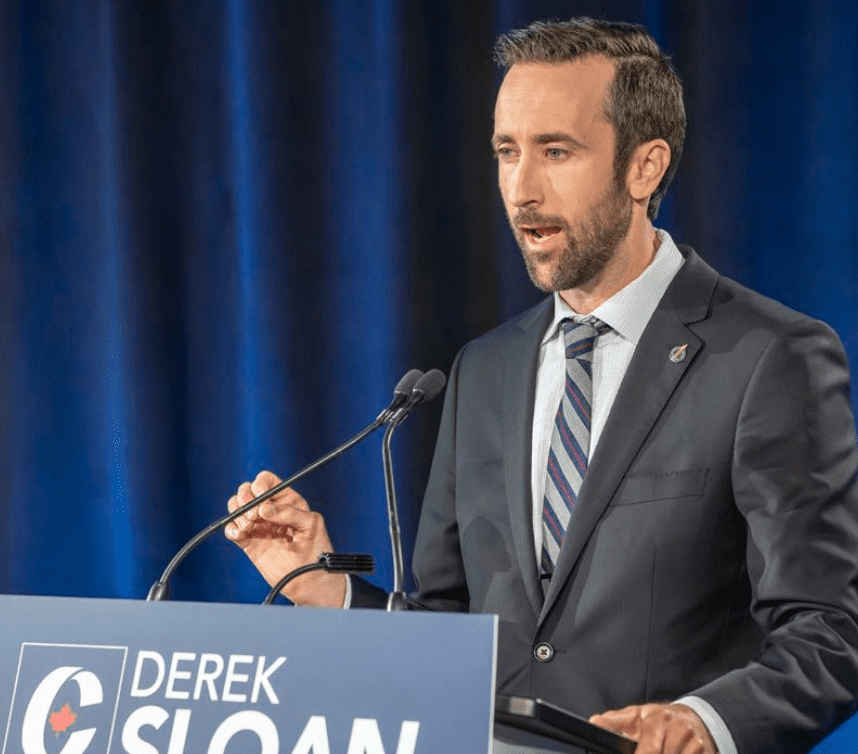Erin O'Toole had not yet been leader of the Conservative Party for 36 hours when the first Liberal demand landed in our inboxes, wherein MP Pam Damoff stated that if O'Toole didn't remove Derek Sloan from caucus and refuse to sign his nomination papers, he would be seen to be condoning some of Sloan's more egregious racist, misogynistic and homophobic statements. O'Toole has merely only committed to having a talk with Sloan, but this demand by Damoff and the Liberals is indicative of a broken culture within politics that needs to stop.
While it should be noted off the start that this is the Liberals' attempt to define O'Toole in the public consciousness before he has a chance to do so himself much like the Conservatives did to Stéphane Dion, Michael Ignatieff, and attempted unsuccessfully with Justin Trudeau it also is trying to force O'Toole to thread the needle with the social conservatives in the party right off the start, hoping to make him uncomfortable in his leadership position with an uneasy coalition of voters in his big blue tent. That's all well and good, but the constant demands about expelling members from caucus from all sides has picked up in intensity over the past couple of parliaments, and nobody stops to think about how problematic this process has become, and most especially how undemocratic these constant demands actually are.
For the record, O'Toole can't summarily dismiss Sloan from the caucus, no matter how odious Sloan's comments, because the caucus signed on to certain provisions from the (garbage) Reform Act that ensure that only a vote from caucus can remove an MP from the ranks, and thus far, they have opted not to do so despite a couple of opportunities in the wake of some of those statements. In addition to that, the Act also states that the leader "officially" isn't supposed to sign nomination papers any longer, but because the provisions were so weak, it's still the de facto practice.
The history of giving the leader these powers dates back to the Canada Elections Act changes in 1970, when a massive revamp of the election system took place, and safeguards were needed to avoid dragging the Chief Electoral Officer into intraparty disputes over nominations now that party names were going to be on the ballot (many of the reasons for which were legitimate). It's a little less well-known that the Liberals were trying to head off pro-life groups from hijacking nomination races, as there was a concerted effort in the wake of Pierre Trudeau's government passing legislation that decreased some of the hurdles toward getting an abortion, and which began the process of decriminalizing homosexuality. If you check Hansard, you won't find any concerns about leaders using this power to blackmail their own MPs to fall in line or risk not having their nomination papers signed, but that was the result.
These days, parties try to vet candidates before they can stand for nomination by means of "green-light committees," but they are by no means foolproof. The Samara Centre for Democracy's report "Party Favours" shows ways in which the parties and by extension the leaders' offices will put their thumbs on the scales of those nomination contests, and can weight them in favour of candidates they want to win rather than leaving them open to the desires of grassroots members especially if some of those would-be candidates do have concerning issues but wind up getting a pass because they are good fundraisers for the party.
Removing this power from the leader is an important step in restoring balance to our system, but it's going to need to be part of a broader overhaul of removing power from the leader. That might include giving the power of green-lighting would-be candidates to a committee that reports to the party president, or perhaps a body comprised of riding presidents more than the current language from the Reform Act that simply allows it to fall to a "designated person" who may simply be the leader's chief of staff or campaign manager.
As for removing sitting MPs from caucus, this too is problematic because they were elected under the party banner, and reflect the wishes of their constituents. Expelling MPs at the first sign of trouble, lest their presence reflect badly on the leader, goes hand-in-hand with the party behaving as a personality cult. Delegating that power to the caucus itself, per the Reform Act, is not much better because it launders the decision and can absolve the leader of looking autocratic even if he or she has orchestrated the expulsion. If all MPs must be homogenously behind the leader and in lockstep with everything, it makes one wonder why we bother with MPs at all, and not simply assign battle droids to the leader in proportion of the seats won, who can recite canned speeches and record whipped votes more effectively than human beings could.
Immediate expulsions also can make problematic MPs more difficult to control or Senators for that matter, thinking immediately of Senator Lynn Beyak. At least if a problematic MP or Senator is within the fold, there are ways that the House Leaders or whips can incentivize better behaviours or to minimize their roles otherwise, but once they are cut adrift, they are able to go rogue. That being said, one would hope that this simply doesn't turn into a rash of expulsions that have the appearance of being "voluntary," as one suspects a few have been, particularly among Liberals who have been accused of harassment or impropriety.
Whether an MP is in the caucus should be a decision that rests with the constituents, and the riding association. If the member turns out to be a problem, it should be up to the riding association as to whether they want to continue having him or her represent them. After all, they are the ones who are supposed to be making those decisions, not the leader, because parties are not supposed to be their own personal cults even if that means being made to wear the association with someone who turns out to be a problem.
Photo Credit: National Post








